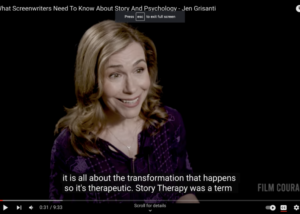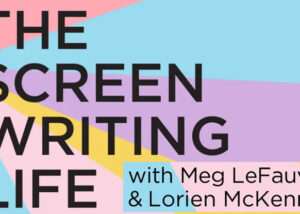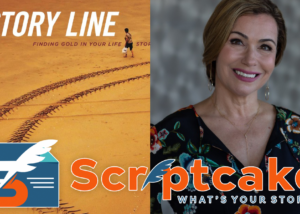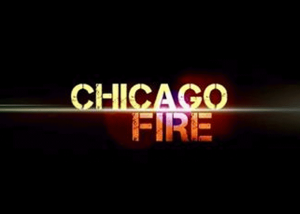I am a story and career consultant for writers. Many writers face the challenge of how to elevate the emotional component of their story. If we are not connecting to your story on an emotional level, the story doesn’t work. One way to elevate the emotion in your story is to understand the significance of the wound. I often tell writers to think about the wound that is driving the central character and the flaw that gets in the way. By understanding how the pursuit is one step toward healing the wound, the story takes on a whole new level emotionally. The wound is what creates empathy and a rooting factor for the protagonist. If the wound is in place, it will add fuel to your pursuit and elevate your story to a whole new level. Understand the wound.
In fiction, when this is done well, we connect on a universal level with what is driving the character. In the pilot for The Good Wife, we see the wound up front when we learn that Peter, Alicia’s husband who holds a political office, is part of a sex scandal that leads him to jail. We see how Alicia responds to this. Her personal dilemma is that she has to publicly face the world when everyone knows that her husband cheated on her in order to bring security back to her family. This is the fuel behind her professional pursuit. This creates the question, what does a woman do to bring security back to her family after her husband commits a crime and goes to jail? The answer to this question is the series. She returns to a law career that she abandoned 13 years before. We understand the personal stakes due to her wound. To add more stakes, we learn that Alicia and another new lawyer, Carey, are up for one spot at the firm. So, we know that every time Alicia hits an obstacle in the case, what is at stake personally is her family’s security. What is at stake professionally is if she loses, she could lose a chance to solidify a spot for herself in the firm. All of this stems from her wound. To add another element, we learn that Alicia has a history with Will, the partner at the firm who is giving her a shot despite her not practicing for 13 years. Their romantic history, combined with Alicia’s wound, adds a whole other layer to this concept. Alicia’s wound is a significant part of what drives this series.
In the movie, The Imitation Game, the pursuit happens when Alan, an expert puzzle solver, is hired by the British government to work on a team whose secret project is to break what is largely seen as the unbreakable secret code behind the Nazis’ communications machine, Enigma. If the British can crack the code it would give the Allies a significant advantage and possibly even end the war. Alan has to get the funding for a machine that he wants to build. Alan’s wound gets established when we learn through a series of flashbacks about an experience that happened when he was a youth attending boarding school. Even then, he is seen as being different. and is bullied because of it. His only real friend at the school is Christopher Morcom, and their friendship/unrequited love are cut short by Christopher’s death due to illness. “Christopher” is what Alan ends up naming his code-breaking machine. Making “Christopher” work also represents Alan’s recognition of their secret love. As Oscar Wilde wrote, “the love that dares not speak its name.” So, because of this, we understand some of the emotional fuel behind Alan’s the professional pursuit.
In the movie, Birdman, we see part the wound upfront with the conflict between how Riggan sees himself and how the world sees him. Riggan is a washed up actor who tries to reclaim his fame on Broadway with a new play. Riggan has an issue that gets in his way of success. The other deep part of his wound is the dysfunctional relationship that Riggan shares with his daughter, Sam, who he has hired to be his production assistant and who has just come out of drug rehab. As this is happening he has to handle a new lead actor and try to rekindle his relationship with his daughter. But most importantly he has to escape the shadow of the popular superhero he used to play, Birdman, in order to be taken seriously as an artist. Part of the fuel with Riggan’s emotional pursuit is in getting Sam to see him in the light that he wants to be seen. This stems from a regret that he has starting with the moment that Sam was born and how he wasn’t present in the way that he wanted to be present due to his pursuit of fame. This wound is very universal. It elevates the emotion in the story.
In life, the wound can also be a tremendous fuel in our professional pursuit. In my own story, one of my wounds was caused by losing a job after 15 years with two sister companies. My fear was that everything that I learned from iconic mentors and the voice that I found in giving story notes was no longer going to have value. This wound is what fueled my pursuit of creating Jen Grisanti Consultancy, writing three books, and speaking about story around the world. My wound was my fuel. It was my personal dilemma that played a significant role in my professional pursuit.
Recently, I met with a writer. We worked on a spec script together. She started to tell me that most of her scripts are toward the teen audience. I asked her if she knew what her wound was. She immediately responded and said that her wound was emotional abandonment. She shared the story of a mother who had too many kids too soon. Two of her siblings were diagnosed with things that her mother was in denial about. So, she was forced to be the parent. I asked her about her other scripts. She suddenly realized that most of them had arcs dealing with emotional abandonment and this led her to connect with the teen audience. I loved this! It all came from her wound. You can build success through understanding your wound.






